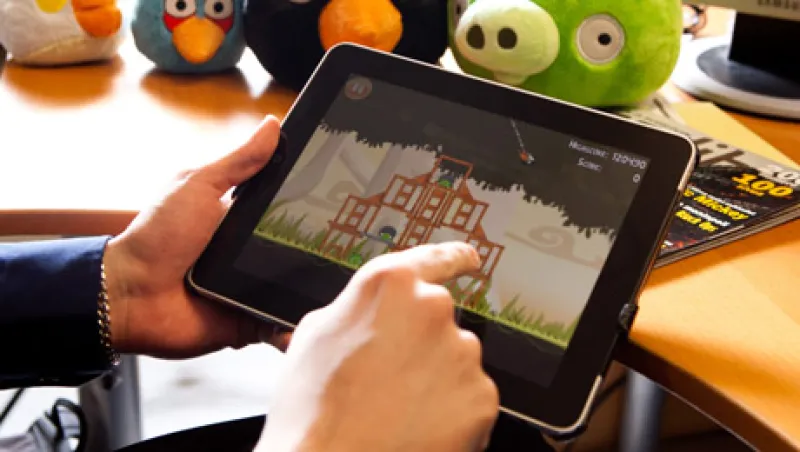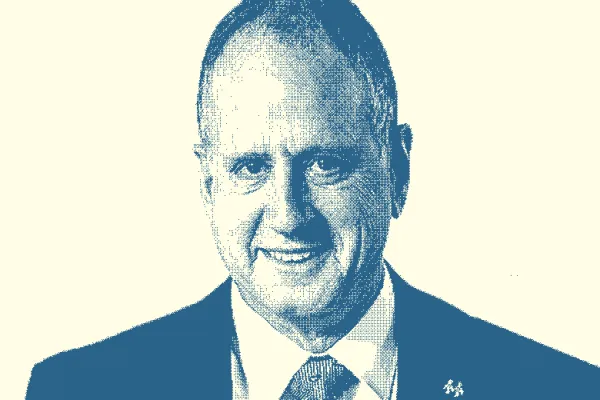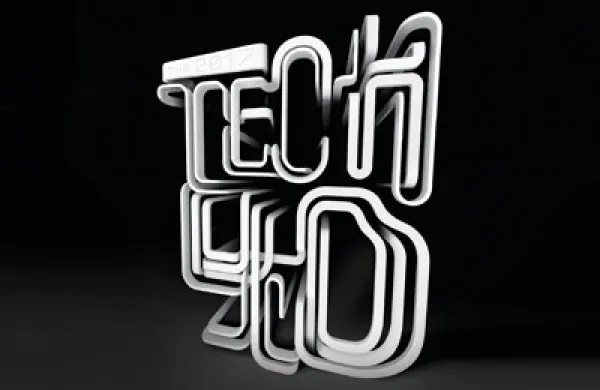From 2002 to his retirement in 2011, Cristóbal Conde was president and CEO of SunGard Data Systems, a software and services conglomerate that is one of the biggest suppliers of information technology to the financial services industry. Not one to retire idly, Conde, 52, served last year as executive-in-residence of the FinTech Innovation Lab, a competition run by Accenture and the Partnership Fund for New York City, along with venture capitalists and bankers, to support cutting-edge financial technology entrepreneurs.
So impressed was Conde with the lab’s winning start-ups that he joined the boards of two: Digital Reasoning Systems, which has developed technology for managing and analyzing large volumes of unstructured data, and True Office, which applies electronic and mobile gaming techniques to employee training. Conde is executive chairman of True Office, spending one day a week with the management team led by CEO Adam Sodowick, who founded the company in 2010.
True Office is involved in what is becoming known as gamification, initially introducing the practice into the humdrum, much-dreaded but mandatory process of regulatory compliance training. Instead of binders and handbooks, True Office employs stories and role-playing on tablets or other mobile devices to engage users.
“The user is immersed in what looks like a cartoon,” Conde explains. “You immediately see how much better it is at engaging employees,” compared with the static images and rote repetition of conventional self-paced training. “You stand a chance of actually teaching them something,” he adds.
Conde tells the story of one employee who enjoyed the program so much that he wanted to take it again. “I never heard of such a thing in anti-money-laundering [training],” says Conde. “When people are having fun, they learn a lot more.”
Conde is one of a growing cadre of believers who see gamification going mainstream, with far wider applicability — and transformative effects — than in this relatively modest proof of the concept. He likens its experiential engagement and immersion to that of flight simulators, which airlines have used with excellent results for safety and emergency preparedness.
Gamification is not entirely new to other commercial realms, including finance. The casinolike character of financial markets has never been lost on quantitative analysts and high frequency traders. Some high-performance hardware originally developed for online gaming has migrated to securities industry servers and desktops. One financial IT innovator, Clem Chambers, made a similar crossover: A former programmer of massively multiplayer online games, Chambers co-founded the Advfn network of investment information websites, which have some 4 million users worldwide; he has been the company’s CEO since 2002.
To Jane McGonigal, a noted game developer and the author of the 2011 book Reality Is Broken, gamification is more revolutionary economically and socially than it is in any single business context.
McGonigal served as director of games research and development for the Palo Alto, California–based Institute for the Future; co-founded the gamified health- and recovery-promoting site SuperBetter; and was an architect of World Without Oil, a “massively multiplayer thought experiment” that immersed participants in a severe energy crisis and provided useful and prescient behavioral and scenario-planning insights. Speaking recently to a high-tech crowd in San Francisco — at the RSA Conference, a gathering of the information security industry — McGonigal did not say gamification would cure the world’s ills. But she came close. She cited empirical and clinical evidence that game-playing fosters such personal qualities as creativity, curiosity and mental resilience, and such skills as spatial awareness and multitasking. Game-playing, she said, also has palliative effects on such conditions as anxiety, autism and hyperactivity.
If more than 1 billion people worldwide are gamers — Angry Birds alone has had 1.7 billion downloads — then something of major proportions is clearly afoot. Think of the generation of happy, well-adjusted, roll-with-the-punches workers that gaming is helping to create.
There is a rather disturbing flip side to all of this: McGonigal’s “broken reality,” a world so alienating and work so unfulfilling as to make the “blissful productivity” of massive role-playing environments like World of Warcraft that much more enticing.
McGonigal describes reality as depressing, unproductive and hopeless, and says there needs to be a bridge from it to the gaming world. “Stop thinking of games as only escapist entertainment,” she counsels.
True Office may very well be on that track.
Jeffrey Kutler is editor-in-chief of Risk Professional magazine, published by the Global Association of Risk Professionals.






